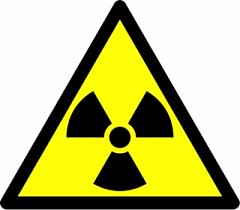Fukushima: Thyroid gland irregularities found
NAGANO (Kyodo) -- Hormonal and other irregularities were detected in the thyroid glands of 10 out of 130 children evacuated from Fukushima Prefecture, a Nagano Prefecture-based charity dedicated to aid for the victims of the 1986 Chernobyl nuclear accident said Tuesday.
The Japan Chernobyl Foundation and Shinshu University Hospital did blood and urine tests on youngsters aged up to 16 including babies under the age of one for about a month through the end of August in Chino, Nagano, when the children stayed there temporarily after evacuating from Fukushima.
As a result, one child was found to have a lower-than-normal thyroid hormone level and seven had thyroid stimulation hormone levels higher than the norm. The remaining two were diagnosed with slightly high blood concentrations of a protein called thyroglobulin, possibly caused by damage to their thyroid glands.
Three of the 10 children used to live within the 20-km no-go zone around the nuclear plant and one was from the so-called evacuation-prepared area in case of emergency in areas between 20 and 30 kilometres from the plant, while six others were from towns outside such zones.
"At present, we cannot say the children are ill but they require long-term observation," said Minoru Kamata, chief of the foundation. No clear link has been established between the children's condition and the radiation from the crippled Fukushima Daiichi nuclear power plant, according to the nonprofit organization.
Radioactive iodine tends to get lodged in children's thyroid glands more than those of adults, placing youngsters at greater risk of developing disorders and diseases including cancer.
(Mainichi Japan) October 4, 2011
Internet site reference: http://mdn.mainichi.jp/mdnnews/news/20111004p2g00m0dm116000c.html
Comments
There are 0 comments on this post















